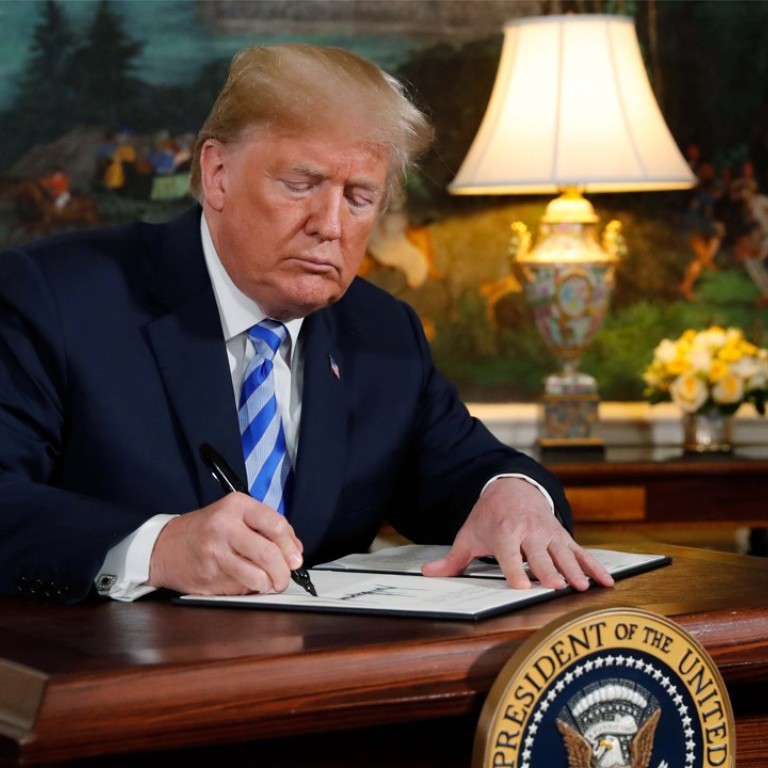
Donald Trump says US will withdraw from ‘rotten’ Iranian deal – while Iran agrees to stay but threatens further nuclear efforts if negotiations fail
Iran has said it will remain in the deal with other signatories, but added that if negotiations fail, it will enrich uranium ‘more than before … in next weeks’
US President Donald Trump has announced that America will pull out of the Iran nuclear deal, calling it a “decaying and rotten structure … defective at its core” and accusing the nation of being “the leading sponsor of terror” in the region.
Instead, he said, he would reimpose sanctions on Iran that had been lifted in exchange for the country ceasing its nuclear development programme. The sanctions include restrictions on the country’s oil sector and metals trade.
Following Trump’s announcement, Iranian President Hassan Rowhani said on state television that the country would remain in the Joint Comprehensive Plan of Action (JCPOA) along with the other signatories. However, he said, if further negotiations fail, Iran will enrich uranium ‘more than before … in next weeks’.
The US Treasury said on its website that it would reimpose a wide range of Iran-related sanctions after the expiration of 90- and 180-day wind-down periods. Among the sanctions’ targets are Iran’s central bank, aircraft exports to the country, its metals trade and its attempts to acquire US dollars.
In announcing America’s departure from the deal, Trump complained that the JCPOA did not restrict Iran’s ballistic missile programme – which was not included in the 2015 agreement – its nuclear activities beyond 2025 nor its role in conflicts in Yemen and Syria.
Iran president defiant as Trump’s nuclear decision looms
“The fact is this was a horrible one-sided deal that should have never ever been made,” Trump told reporters at the White House. “It didn’t bring calm. It didn’t bring peace. And it never will.”
He added: “We cannot prevent an Iranian nuclear bomb under the decaying and rotten structure of the current agreement. The Iran deal is defective at its core.”
The US president said he made the decision after talking with other signatories to the deal, and said that the US was “working with our allies to find a real comprehensive and lasting solution to the Iranian nuclear threat”.
As Trump signed a document confirming the country’s departure from the deal, he said it would make America “safer”. A reporter asked how leaving the deal would protect the US, but he did not respond.
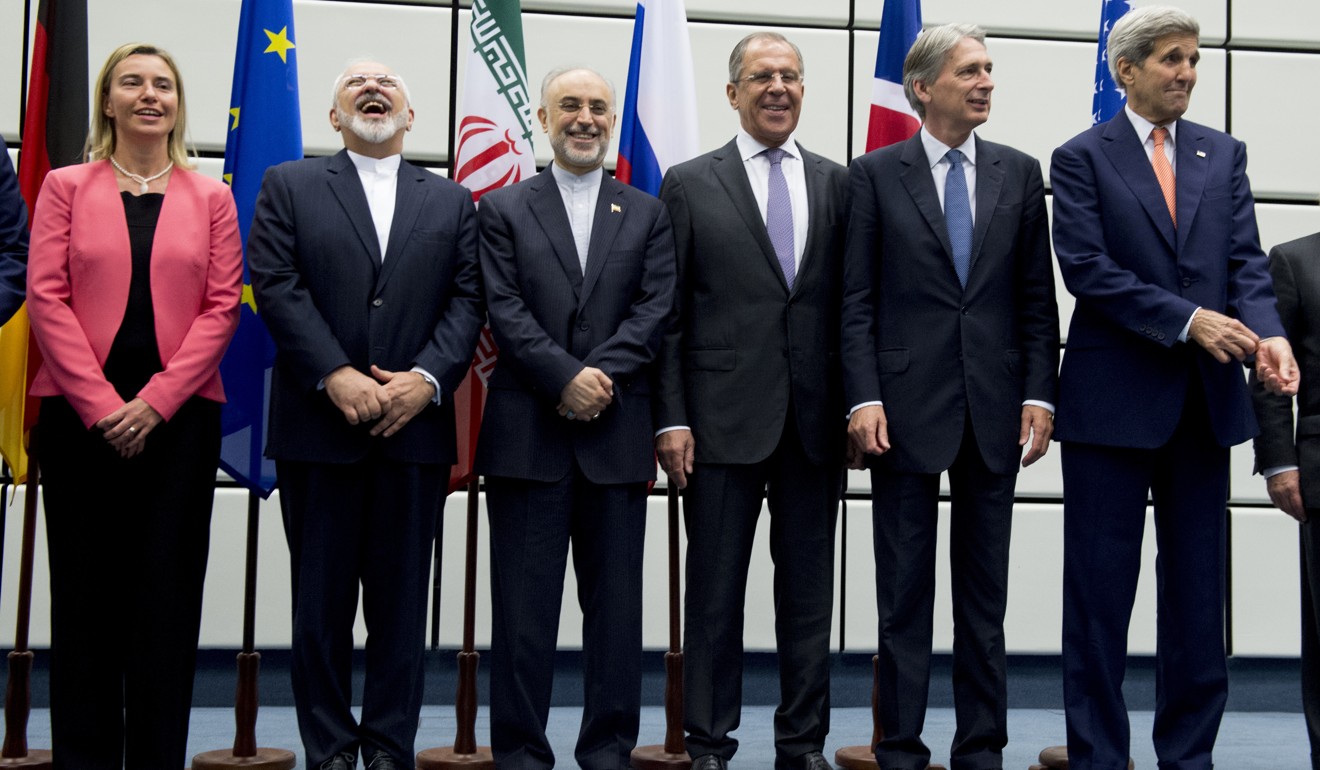
In the wake of the announcement, Iranian state television said Trump’s decision was “illegal, illegitimate and undermines international agreements”.
President Rowhani called Trump’s decision an “act of psychological warfare” and threatened to continue uranium enrichment if future negotiations failed, but said that Iran would remain in the deal for now.
He had previously said that he hoped to salvage the deal as much as possible with the help of the other parties – Britain, France, Germany, China, Russia and the European Union – that have strongly opposed the US decision to withdraw.
US will regret pulling out of nuke deal ‘like never before’, warns Iran
Moments after Trump made the announcement, French President Emmanuel Macron said on Twitter that his country, Britain and Germany regretted the US’s decision and would work on a wider agreement for Iran, adding that “the nuclear non-proliferation regime is at stake”.
“We will work collectively on a broader framework, covering nuclear activity, the post-2025 period, ballistic activity, and stability in the Middle-East, notably Syria, Yemen, and Iraq,” he said.
UN Secretary-General Antonio Guterres urged the other signatories to stick to their commitments, saying in a statement: “I call on other JCPOA participants to abide fully by their respective commitments under the JCPOA and on all other member-states to support this agreement.”
Guterres said he was “deeply concerned” by the US decision to pull out of the agreement that he again described as a “major achievement in nuclear non-proliferation and diplomacy”. The agreement has “contributed to regional and international peace and security,” he said.
EU foreign policy chief Federica Mogherini said that “the European Union is determined to preserve [the agreement]”, adding: “I am particularly worried by the announcement tonight of new sanctions.”
Israel’s Netanyahu to meet Vladimir Putin ahead of nuclear deal deadline
Belgian Prime Minister Charles Michel said that scrapping the Iran deal meant more instability in the Middle East and said he “deeply regrets” the announcement, and that the EU and its partners “must remain committed and Iran must continue to fulfil its obligations.”
The president of the European Council, Donald Tusk, said that Trump’s stance on Iran and international trade “will meet a united European approach” and that all 28 EU leaders will discuss the matter when they meet in the Bulgarian capital of Sofia next Wednesday.
German Deputy Foreign Minister Michael Roth said on Twitter that “Now we Europeans must save what can be saved” of the Iran nuclear deal.
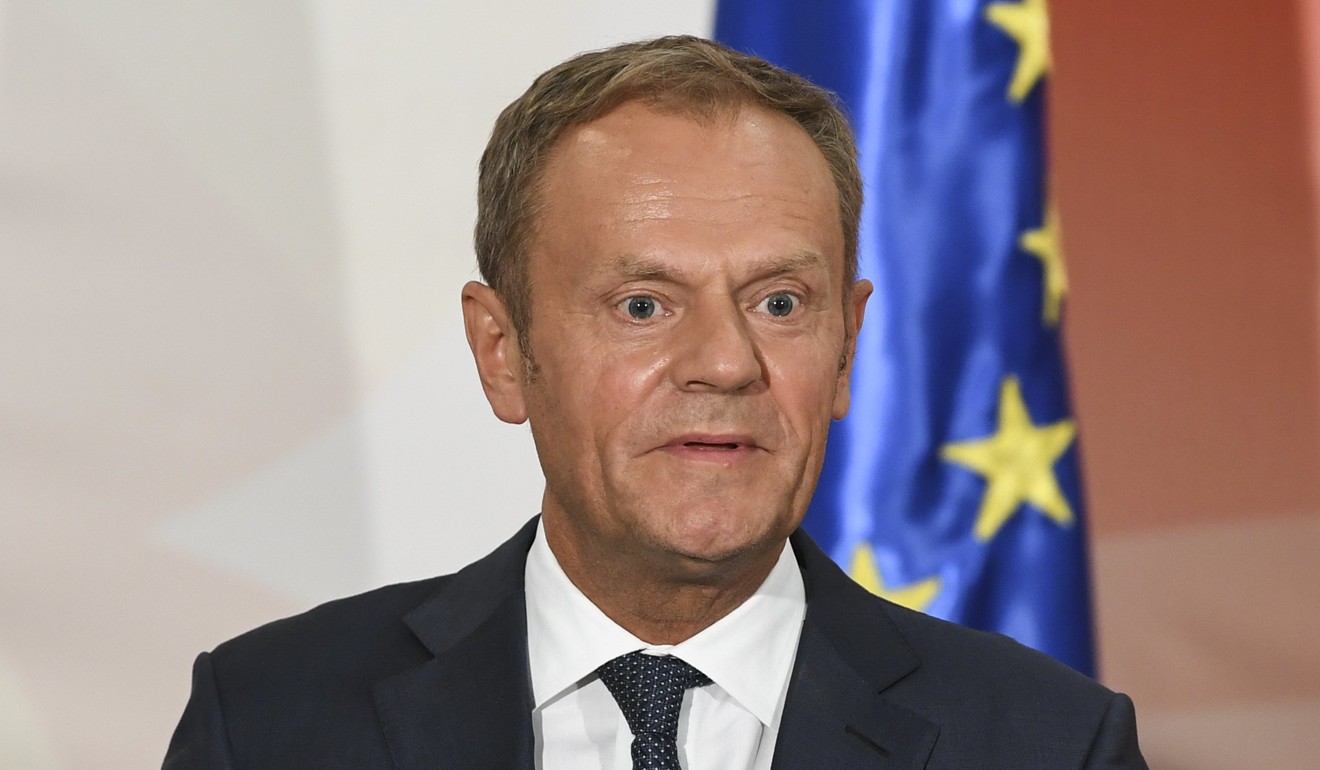
And Yevgeny Serebrennikov, first deputy head of the defence and security committee in the Russian Upper House of Parliament, told the RIA news agency that Trump’s decision to leave the deal puts the Korean peninsula peace process in doubt.
Vladimir Chizhov, Russian envoy to the European Union, was quoted separately by RIA as saying that Russia will continue its efforts to keep the Iran nuclear deal functioning.
Former US President Barack Obama – who has remained silent on Trump’s presidency since he handed over the office last year - also stepped forward to call Trump’s move “misguided” because Iran had been complying with the agreement.
Israel’s Netanyahu to meet Vladimir Putin ahead of nuclear deal deadline
Obama, whose administration brokered the deal, also warned: “The consistent flouting of agreements that our country is a party to risks eroding America’s credibility, and puts us at odds with the world’s major powers.”
Without the deal, the US “could eventually be left with a losing choice between a nuclear-armed Iran or another war in the Middle East,” he said, adding that the deal remains a model for what diplomacy can accomplish, including when it comes to North Korea.
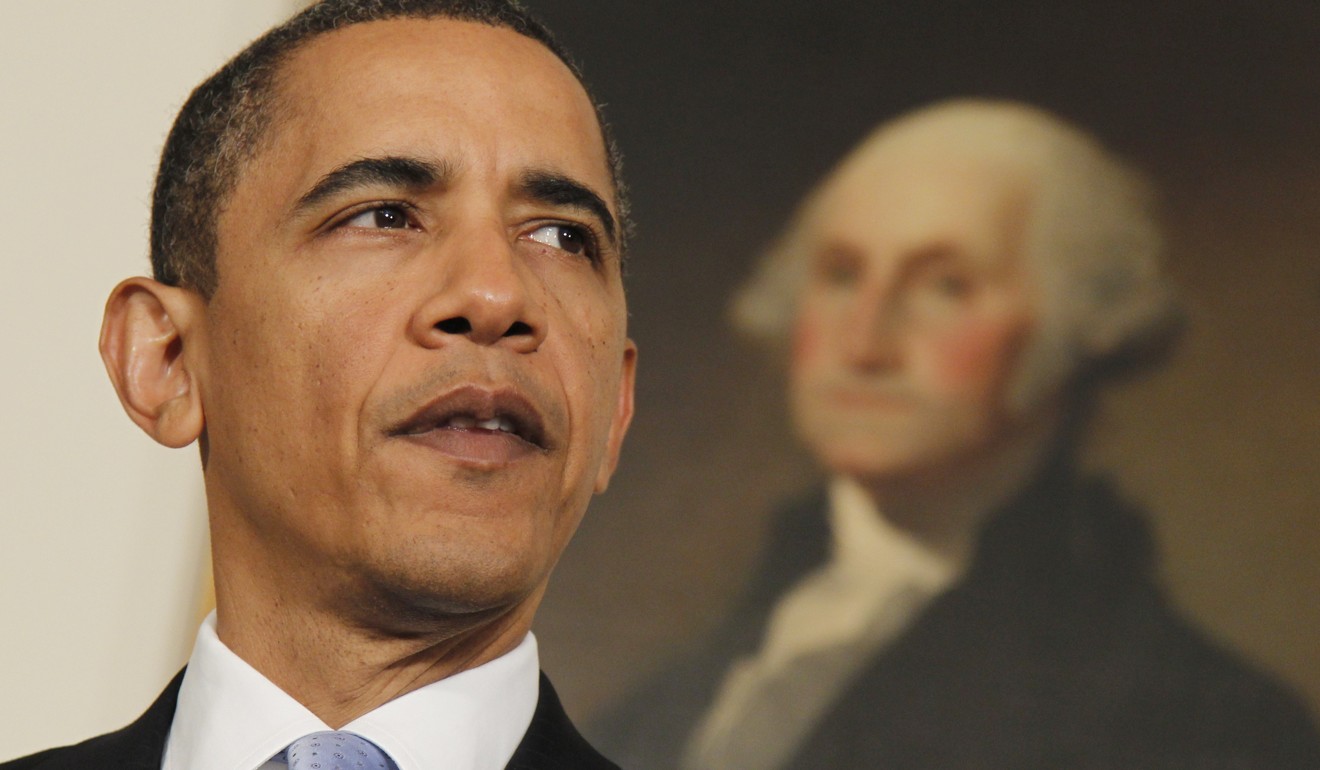
Despite anger from the West and Russia, however, Trump’s announcement was hailed by Israel, Saudi Arabia and the United Arab Emirates, Washington’s principal allies in the Middle East.
The deal was “a recipe for disaster, a disaster for our region, a disaster for the peace of the world”, according to Israeli Prime Minister Benajmin Netanyahu, a long-time opponent of the agreement.
He accused Iran of preparing to attack Israel, saying: “For the past months, Iran has been transferring weapons to its forces in Syria.
“We will react with force [to any attack]. The army is prepared, the army is strong, and whoever will try us will feel well the strength of our arm,” he warned.
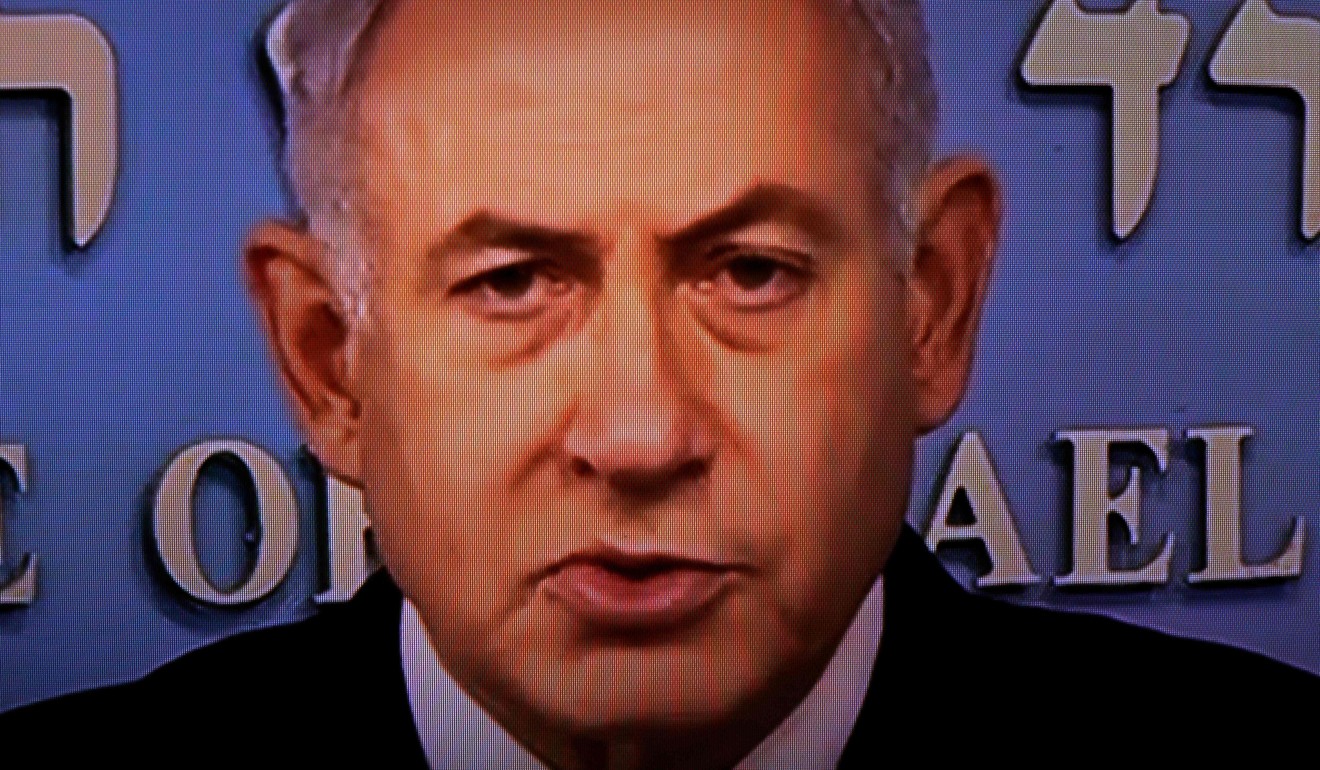
The prime minister called on the international community to join the United States and revoke the landmark deal, which he said would have enabled Iran to enrich uranium “in quantities sufficient to produce a whole arsenal of nuclear bombs”.
Netanyahu added: “Israel thinks that President Trump made an historic move, and this is why Israel thanks President Trump for his courageous leadership, his commitment to confront the terrorist regime in Tehran, and his commitment to ensure that Iran never gets nuclear weapons, not today, not in a decade, not ever.”
Saudi Arabia, a Sunni Muslim power that considers Shiite Iran to be its main regional foe, also praised Trump’s decision.
“Iran used economic gains from the lifting of sanctions to continue its activities to destabilise the region, particularly by developing ballistic missiles and supporting terrorist groups in the region,” said a statement carried on Saudi-owned Al Arabiya television.
Although the deal is expected to continue for now, its possible collapse – mentioned by Rowhani in response to Trump – could ratchet up tensions in a region wracked by interrelated wars, including the multi-layered conflict in Syria, where Iran’s presence has brought it into conflict with Israel.
Trump had consistently threatened to pull out of the 2015 agreement because it does not address Iran’s ballistic missile programme or its role in wars in Syria and Yemen, and does not permanently prevent Tehran from developing nuclear weapons.
European leaders have warned a US withdrawal would undo years of work that has kept nuclear arms out of Iran’s hands.
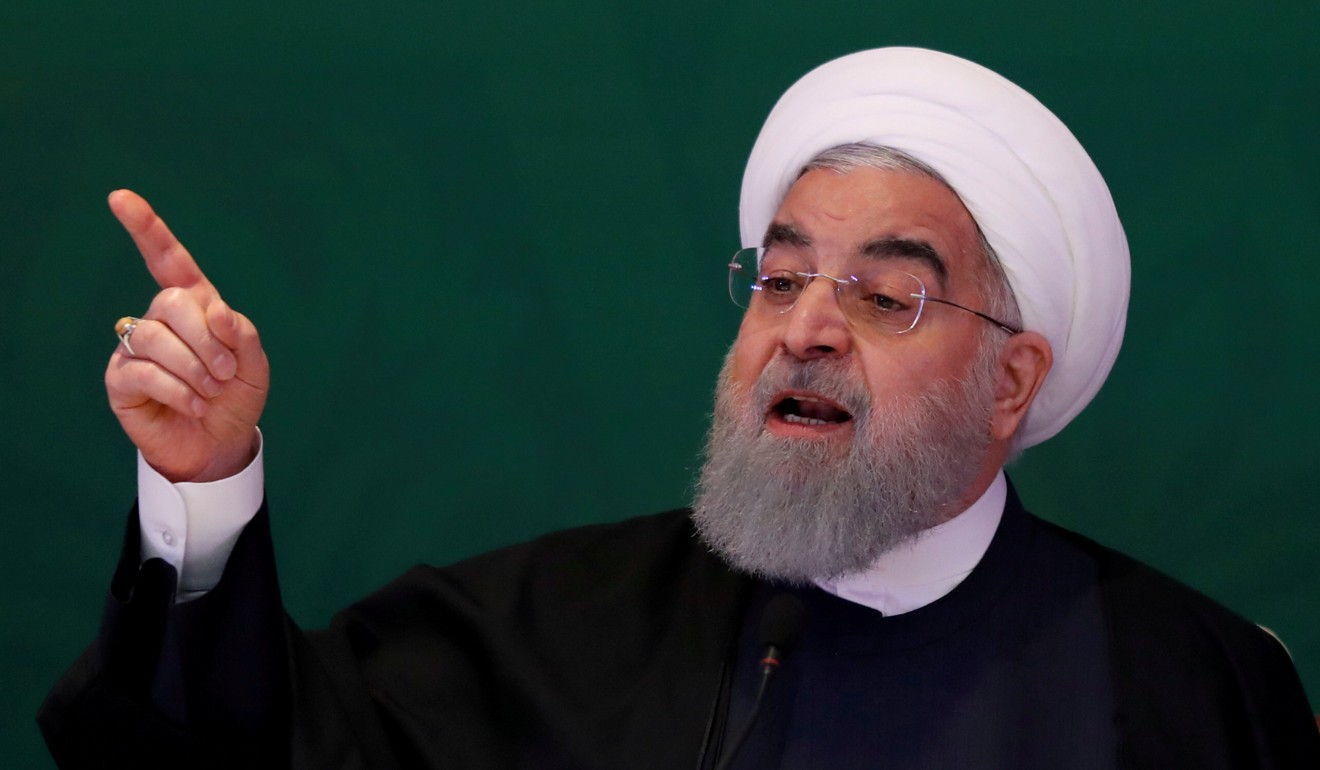
As talk circulated on Tuesday that Trump might pull out, a spate of defiant Iranian statements were made asserting that the deal’s demise would not harm its economy, and that Tehran did not fear US military attack.
A group of Iranian lawmakers said the parliament would oblige the government to react “fiercely” if the United States tried to impose what they called its “illegitimate demands” on Tehran over the nuclear deal, state television reported on Tuesday.
“We parliamentarians, of different political affiliations, support the establishment’s stance against renegotiating the [nuclear] deal. America cannot impose its illegitimate demands on Iran … and ignore Iran’s rights,” they said in a letter addressed to Iran’s Supreme Leader Ayatollah Ali Khamenei.
Revolutionary Guard deputy commander Hossein Salami said: “Our enemies including America, the Zionist regime [Israel] and [their] allies in the region should know Iran has prepared for the worst scenarios and threats.”
Earlier on Wednesday, both the White House and the office of French President Emmanuel Macron denied claims that Trump had told Macron that he planned to announce America’s withdrawal from the Iran nuclear deal.
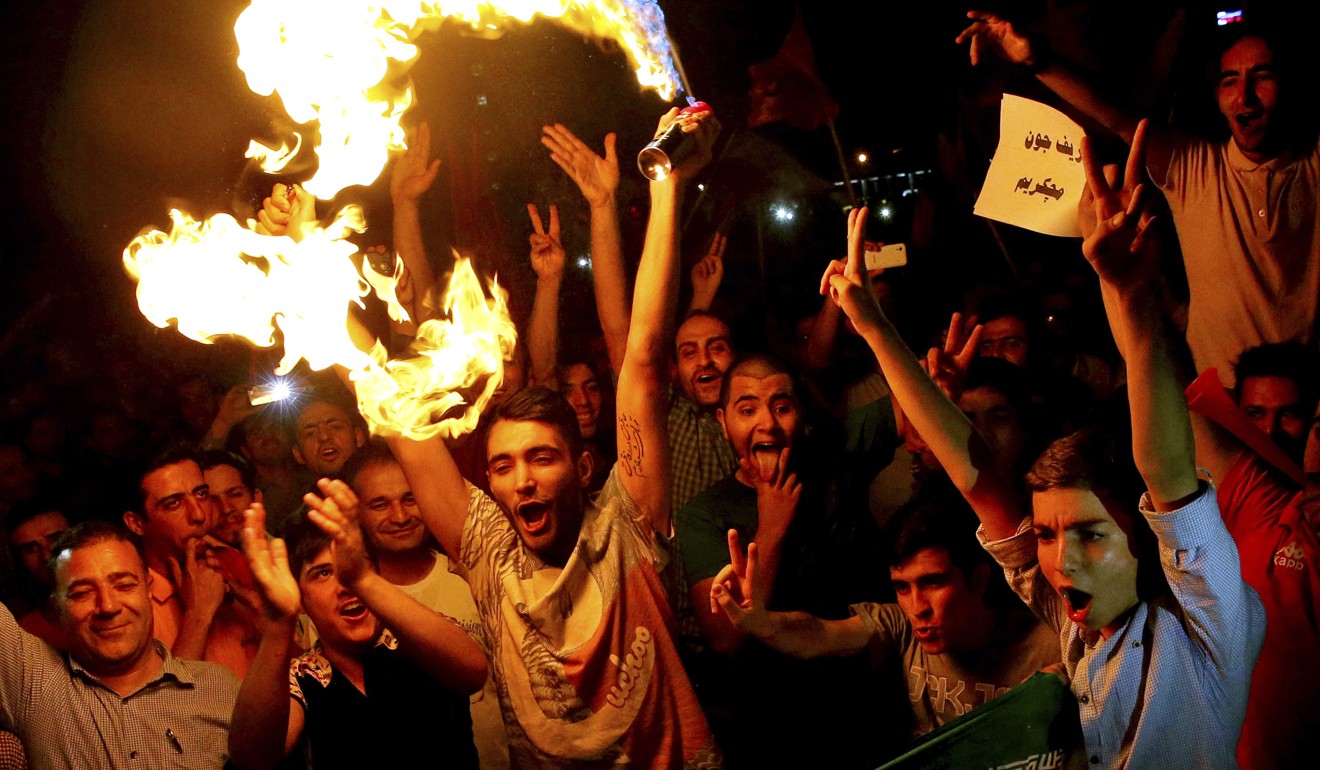
Trump was said to have made the remarks to Macron on Tuesday morning, according to a report by The New York Times. European officials said they struggled to persuade Trump that the accord had halted Iran’s nuclear ambitions.
Macron’s office denied the story, saying that Trump had given the French president no indication of what he would announce, while the White House said that Trump did not say “those things”.
However, one senior European official closely involved in Iran diplomacy said US officials had indicated late on Monday that Trump would withdraw from the agreement, but it remained unclear on what terms and whether sanctions would be reimposed.
A senior Western diplomat said France, Britain and Germany – also party to the accord – were working on the assumption of a hard US exit after a call last week between US Secretary of State Mike Pompeo and European officials at which he made clear talks on rescuing the deal would not go further.
“He let it be known that it was over,” the diplomat said.
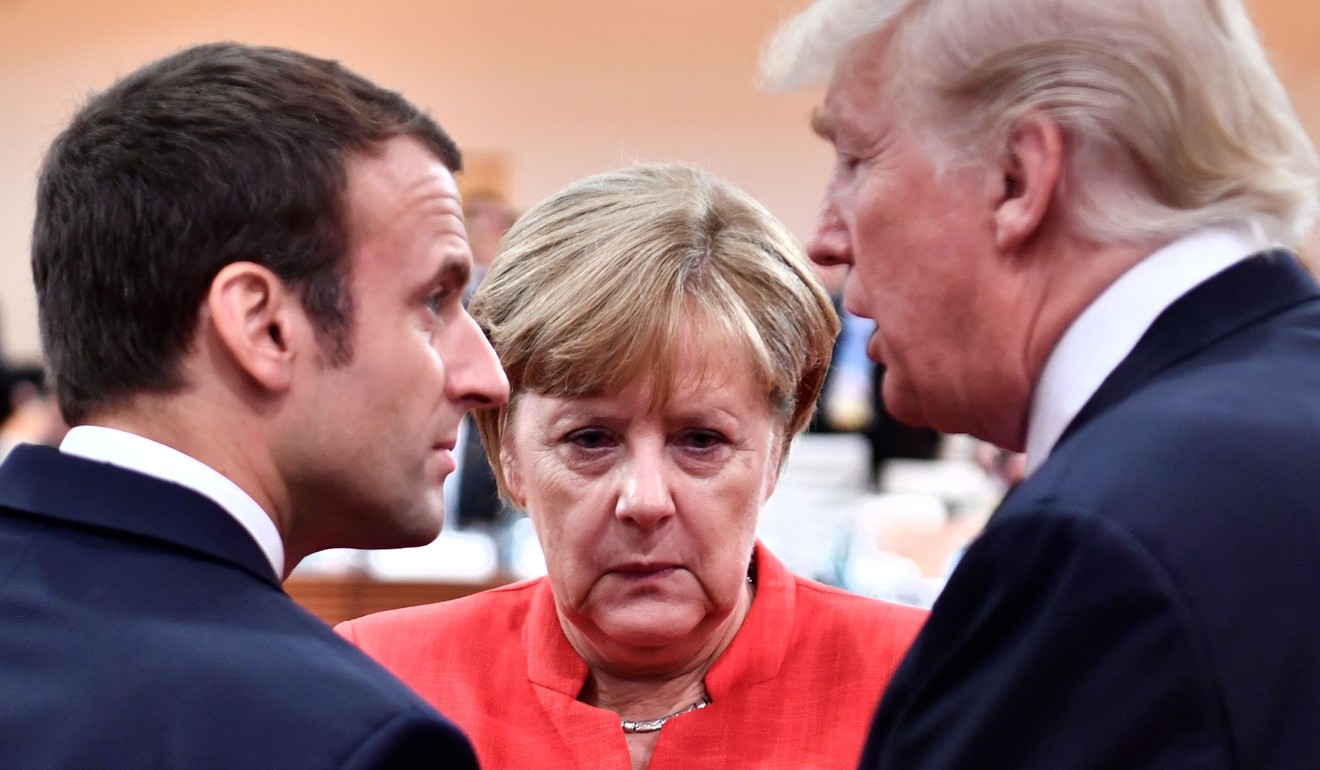
Iran’s nuclear programme under the 2015 deal
Here’s where Iran’s nuclear programme stands under the deal that the US has now vacated.
Uranium: Iran can only maintain a stockpile of 661 pounds (300 kilograms) of low-enriched uranium, compared to the 220,460 pounds (100,000 kilograms) of higher-enriched uranium it once had. Iran can only enrich uranium to 3.67 per cent, which can be used to fuel a civilian reactor but is far below the 90 per cent needed to produce a weapon.
Centrifuges: Iran previously had some 20,000 centrifuges. It now can have no more than 6,104 older-model centrifuges at two inspected sites. Centrifuges spin rapidly and are used to enrich uranium.
Other nuclear sites: Iran reconfigured a heavy-water reactor so it couldn’t produce plutonium. It agreed to convert its Fordo enrichment site – dug deep into a mountainside – into a research centre.
Inspections: The United Nations nuclear watchdog, the International Atomic Energy Commission, can inspect any declared nuclear site at any time. It can also request access to any other site deemed suspicious. Iran has 24 days to allow such an inspection. If Iran refuses, an arbitration panel weighs the request and sanctions can immediately restart.
Sunset provisions: Fifteen years after the deal, restrictions on Iran’s uranium enrichment and stockpile size expire.
Ballistic missiles: Iran’s ballistic missile programme is not a part of the nuclear deal, which has led to criticism from opponents of the accord.

